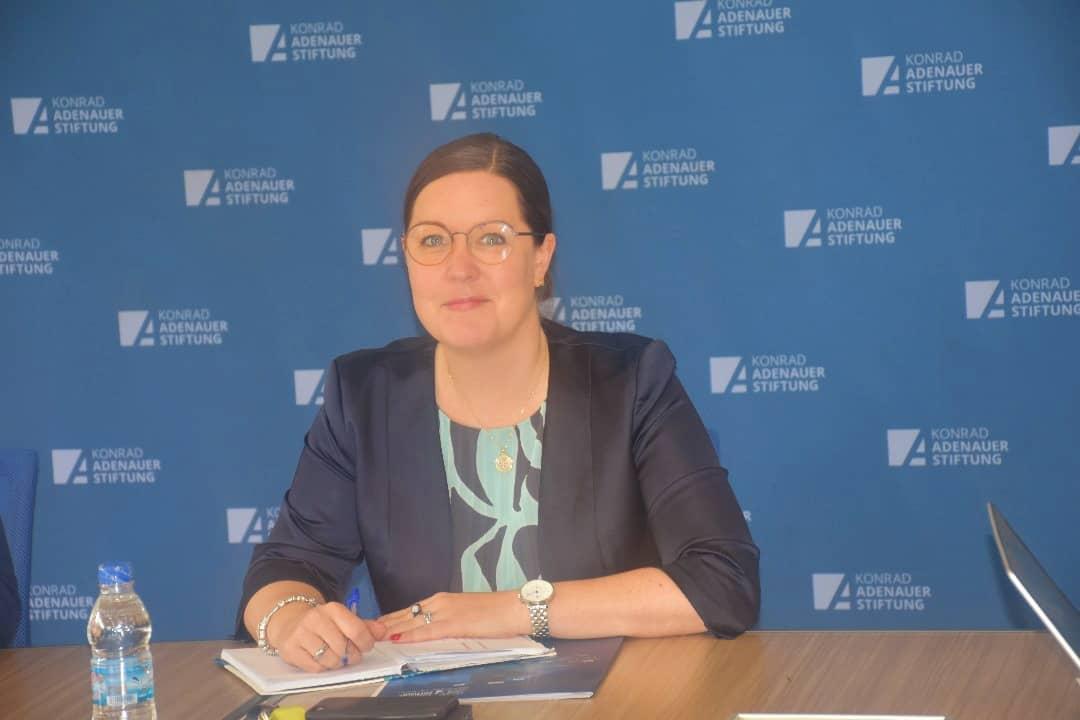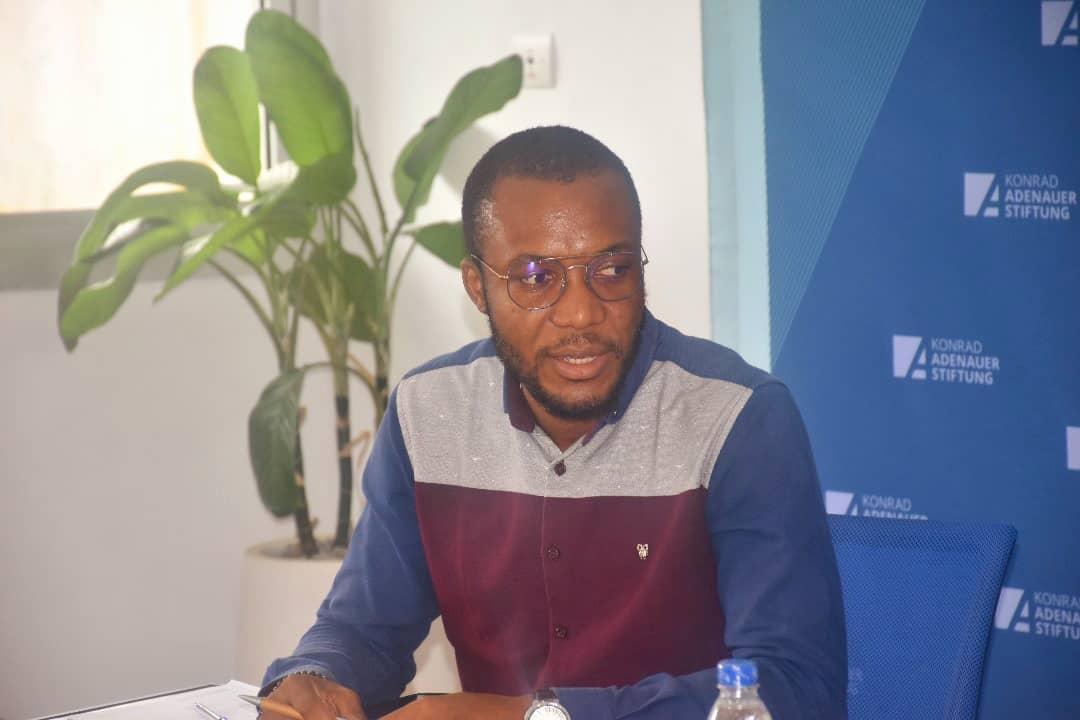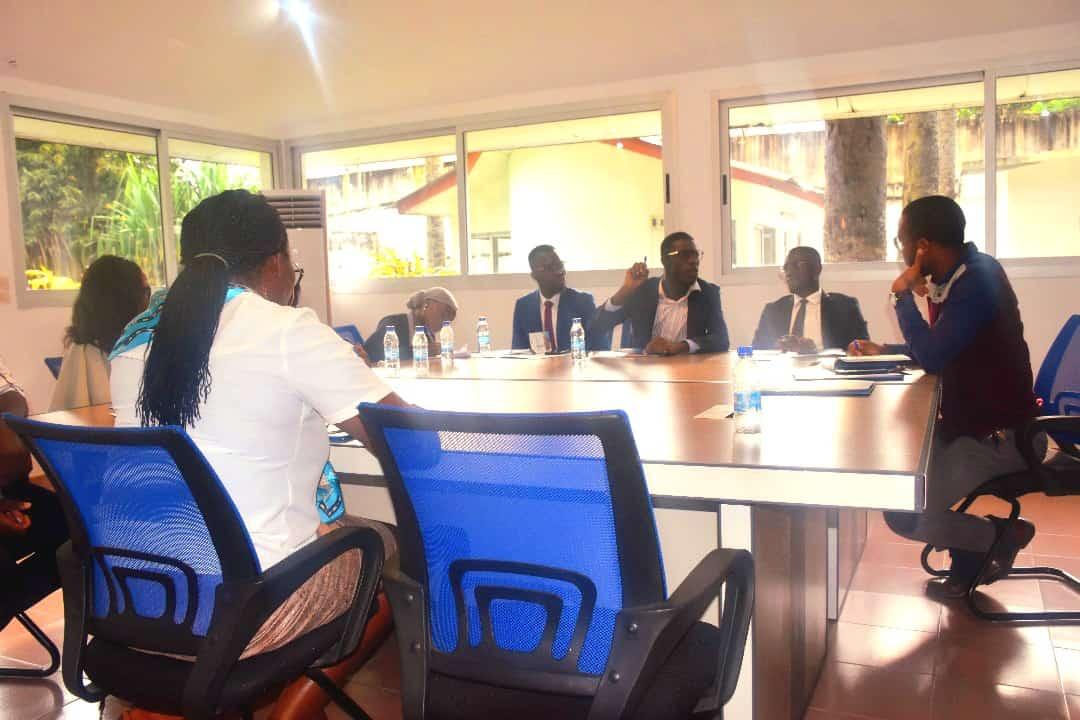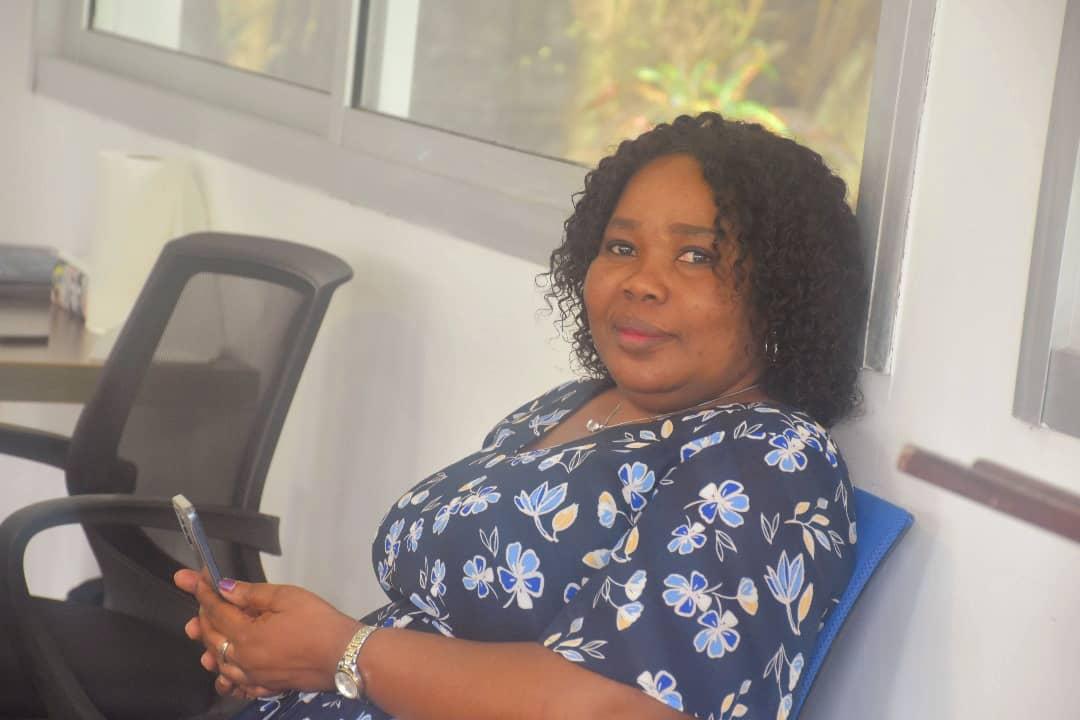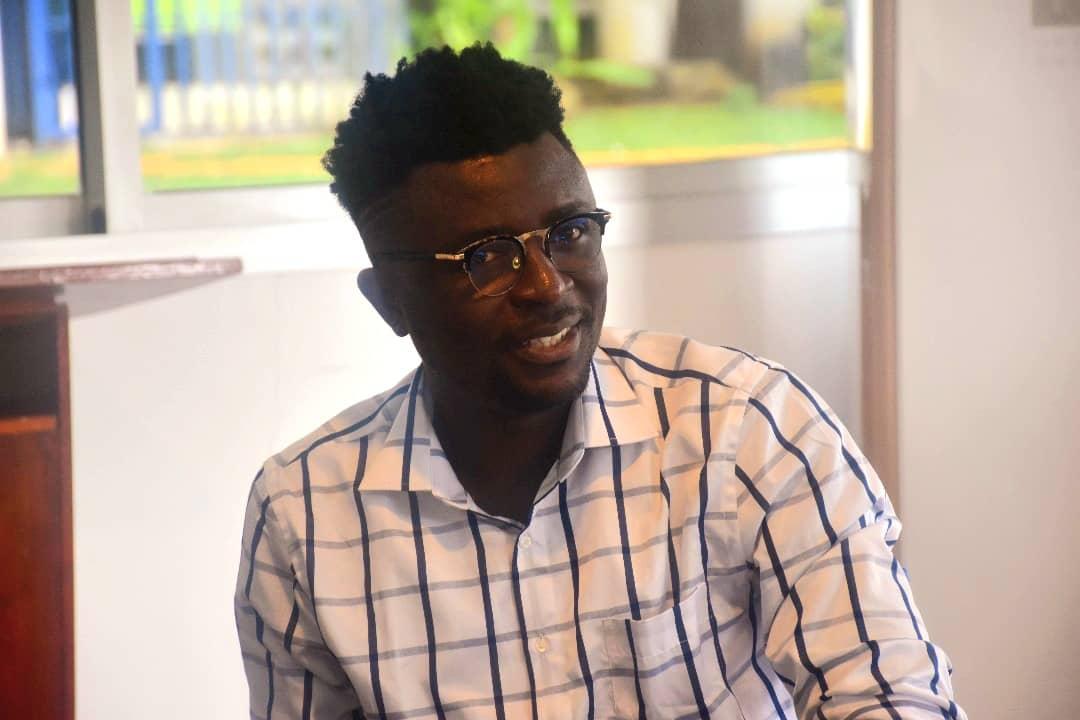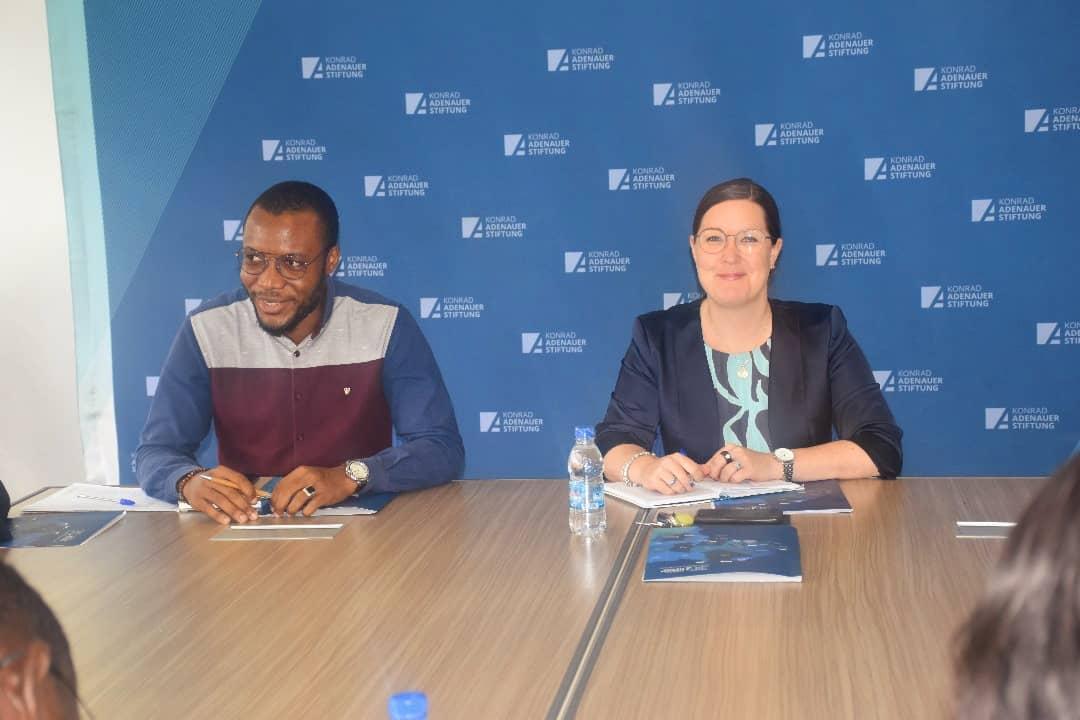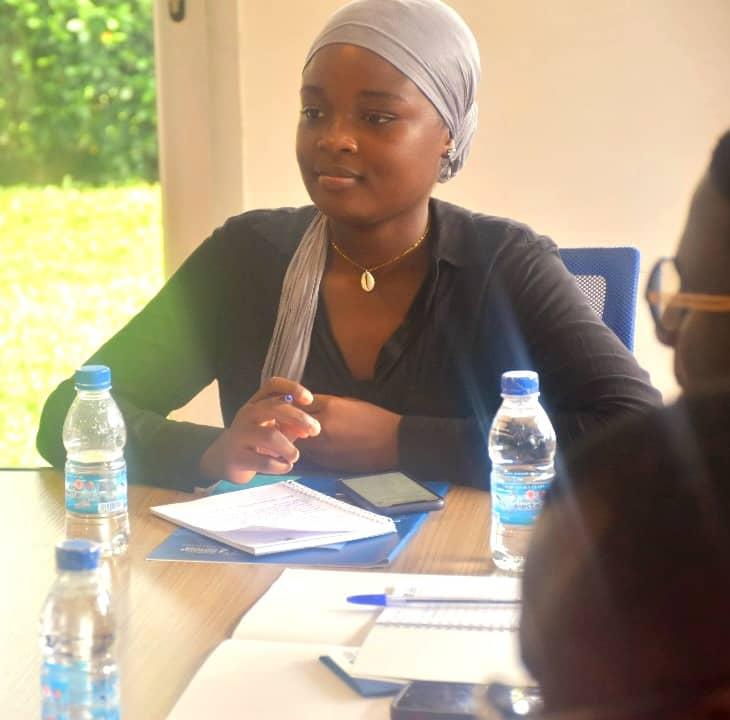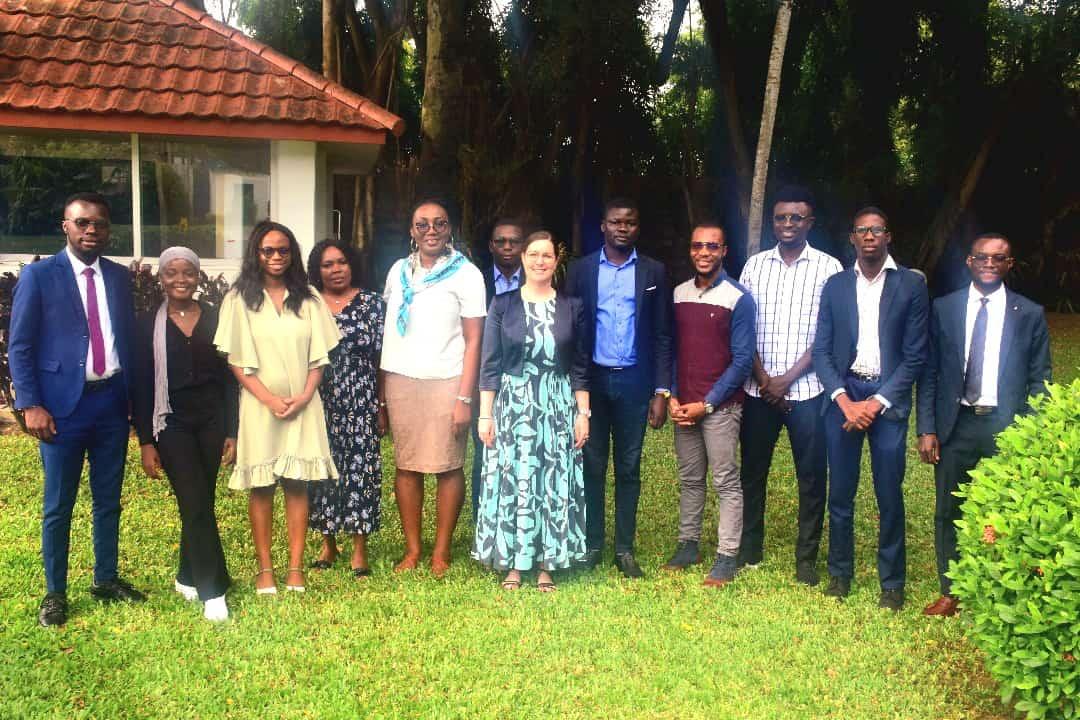"Aware of the importance of youth participation in the process of improving political dialogue, and convinced that renewal will come about through the active participation of young people (...), KAS is delighted to give you the opportunity to exchange views on subjects that are an integral part of your daily lives, and on which your perspective as young people is more than crucial", said Dr. Stefanie BRINKEL in her speech.
For these young people, members of the PDWA Alumni Network, "the coupled municipal and regional elections of September 02, 2023 were not only a test of the country's democratic maturity, but also an opportunity for youth and women to play a significant role in the management of their respective local authorities", says Ivoire Estelle Zadi, Alumni of the KAS Foundation and President of the Bla-Kpa Foundation. "However, these have revealed that, contrary to what is prôné, l'environnement politique ne favorise la participation active des jeunes qui, s avère l'une conditions essentielles pour assurer une démocratie inclusive et équilibrée. A cet égard, il paraît judicieux d'encourager l'adoption d'une loi fixant 20% de jeunes sur les listes partis politiques impliqués dans les élections locales ", tenu à préciser le Secrétaire général du CNJCI, Arnaud AMANI, également boursier de la fondation KAS.
At the end of the discussions, Arnaud GOHI, a member of the PDWA Alumni Network and President of the NGO Garde citoyenne, drew everyone's attention, especially the political class, pointing out that "although the local elections were generally peaceful, they nevertheless marked the need to enrich the political offer, modernize the electoral system and work towards citizens of integrity and involvement."
Fellows old and new were also keen to share their thoughts in a document available to all. Here are the contents:
COMBINED MUNICIPAL AND REGIONAL ELECTIONS: BETWEEN DOUBTS AND HOPES?
On September 02, 2023, Ivorians were invited to the polls for the coupled municipal and regional elections. Although this election went relatively smoothly throughout the country, it still raises questions about the effectiveness of the Independent Electoral Commission and the electoral framework.
On September 02, 2023, Ivorian voters were called to the polls to elect regional and municipal councillors. Unlike the 2018 local elections, which were marred by major violence and resulted in the death of five (5) people, the 2023 elections took place in a relatively peaceful climate. This election, which was intended to be inclusive, aroused real enthusiasm among the population. For the African Peoples' Party (PPA-CI), created after the return of ex-president Laurent Gbagbo, it was the first major test.
The RHDP strengthens its hegemony; the opposition seeks its bearings
The RHDP has emerged from this election stronger than ever. Based on results from thirty (30) of the country's 31 regions, the RHDP scored a crushing victory, winning twenty-five (25) regions. In the municipal elections, of the 199 communes whose results are also available out of the 201 communes in Côte d'Ivoire, the RHDP came out on top, winning 123 communes. In other words, the RHDP is the largest political party in terms of electoral base in Côte d'Ivoire.
The PDCI-RDA, on the other hand, is trying to hold on despite the death of its president Henri Konan Bédié on August 01. The old party has managed to gain control of three (03) regions and 22 communes.
For the PPA-CI, the election was almost a debacle. Indeed, the few seats it did win were the fruit of the alliance in places between the party founded by Laurent Gbagbo and the PDCI-RDA. This alliance won one region and 10 communes. The Front Populaire Ivoirien, led by Affi N'Guessan, lost its only regional seat. The party president was defeated by PDCI-RDA candidate Véronique Aka. Instead of the expected recomposition of the electorate, this election turned into a show of strength for the ruling party.
But while it's clear that this election took place in a relatively peaceful climate, many structural problems remain. In the majority of cases, most young people were somewhat disappointed by the overall content of these elections, and expected a little more. As young civil society players and members of the Alumni Network of the Konrad-Adenauer-Stiftung's regional Political Dialogue program in West Africa, we have identified a number of concerns shared by Ivorian youth regarding the September 2, 2023 elections in Côte d'Ivoire.
A poor political offering and electoral transhumance
Regional and municipal councils are part of the decentralization process. Their mission is to build development at local level. In such a configuration, the campaign for this election should be the place to present structured and coherent projects on issues that directly affect the population. Unfortunately, very few candidates from either the majority or the opposition emphasized this aspect.
Instead, debates revolved more around people, fuelled by ad hominem verbatim. At the same time, "infrastructure blackmail", the golden rule of electoral clientelism, was established as the means par excellence to psychologically coerce the electorate. Indeed, some RHDP candidates have been quick to point out that choosing a candidate other than the one in power will be a sanction vote against the population itself, as it will be deprived of infrastructure or major investments. A practice far removed from political ethics and fundamental texts.
Instead of an attractive project, the phenomenon of transhumance remains an alternative for certain candidates. Often referred to as "deportivo", this phenomenon consists of registering non-resident voters to vote for the highest bidder, who provides them with per diem and transport. Money has thus become the motive for voting for many voters. This situation poses a danger to Côte d'Ivoire's young democracy. Moreover, this scourge often skews the electoral game and "imposes" on the population elected representatives who do not have the first vote. To these already numerous problems must be added the imperfections of the Independent Electoral Commission.
The electoral commussion and its many shortcomings
As in previous elections, a number of shortcomings were observed in the organization of the elections. There were numerous logistical problems, such as the late opening of some polling stations and delays in making voting materials available. In addition to these problems, the proclamation of results was slow.
In this environment where transparency is not the watchword, suspicions of anti-democratic practices likely to taint the sincerity of the ballot led to the cancellation of results in several localities by the Conseil d'Etat. Particularly in Guémon. Today, more than ever, it is essential to rethink the electoral system and (re)build a responsible electorate to strengthen democracy.
Solutions for electoral transparency
For decades, the IEC has been at the heart of tensions during elections. The reason for this is that this body, which must arbitrate the process, is made up of members of political parties. It's only logical that tensions should continue to surround this institution. It's time to think about a new structure for this body. It's time to think about entrusting it to non-partisan players such as civil society and traditional and religious leaders.
A legal framework should be put in place to punish political players guilty of proven fraud or anti-democratic behavior designed to hinder the smooth running of the process.
As far as the electorate is concerned, we need to work on building their capacity to understand the importance of voting and the role of each elected authority. To this end, we need to keep training the population. In the final analysis, the actions taken by the IEC in this area in the run-up to the elections do not address the issue in depth. The CEI should rely on its local branches to set up voter camps to raise awareness of the dangers of vote-selling. As far as electoral transhumance is concerned, it is time to review the voting provisions in order to effectively combat this practice, which often biases the population's choice in local elections, and even affects the sincerity of the ballot.
Abidjan, September 22, 2023
By the Ivorian Coordination of the PDWA Alumni Network
Note: The PDWA Alumni Network is a sub-regional network present in 4 countries (Benin, Côte d'Ivoire, Guinea and Togo). The Network brings together all current and former fellows of the Konrad-Adenauer-Stiftung's Regional Program for Political Dialogue in West Africa (PDWA), whose regional office is based in Abidjan. The network has over a hundred members and is active in the fields of Democracy and Good Governance, Security and Transnational Relations, Integration and Sub-regional Economic Cooperation, as well as the pressing challenges facing West African youth.



